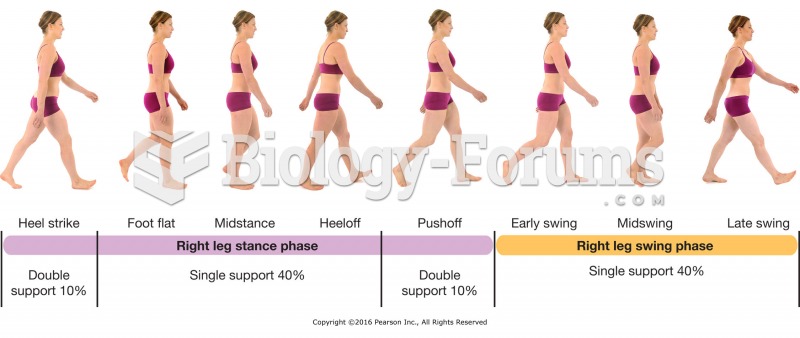|
|
|
More than 4.4billion prescriptions were dispensed within the United States in 2016.
Vaccines cause herd immunity. If the majority of people in a community have been vaccinated against a disease, an unvaccinated person is less likely to get the disease since others are less likely to become sick from it and spread the disease.
Malaria mortality rates are falling. Increased malaria prevention and control measures have greatly improved these rates. Since 2000, malaria mortality rates have fallen globally by 60% among all age groups, and by 65% among children under age 5.
When blood is exposed to air, it clots. Heparin allows the blood to come in direct contact with air without clotting.
People with high total cholesterol have about two times the risk for heart disease as people with ideal levels.







